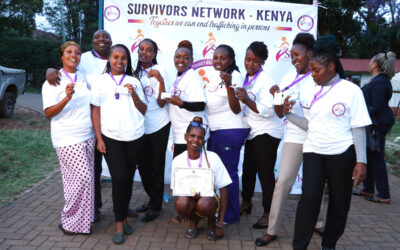Today marks the official anniversary when the United Nations passed its Convention for the Suppression of the Traffic in Persons and of the Exploitation of the Prostitution of Others. It was approved in 1949, and the U.N. has honored this landmark anti-slavery treaty by commemorating its passage each Dec 2nd as the International Day for the Abolition of Slavery.
This year, Abolition Day takes on added urgency. A newly-passed Protocol on Forced Labor has been developed by the U.N. International Labor Organization (ILO). It’s a legally-binding treaty that requires governments to take new measures to tackle modern slavery in all its forms, the ILO says. It works on three main levels: protection, prevention and compensation. As an international treaty, countries must first ratify the protocol before it enters into force.
So, the ILO has launched its 50 for Freedom Campaign this year. The goal is to get at least 50 countries to pass the protocol by 2018. The protocol amends the ILO’s original anti-slavery convention from 1930, which pre-dates the later U.N. treaty. The newly-updated ILO convention takes new forms of slavery into account.
You can take a stand for freedom today in just one minute, by visiting the 50 for Freedom Campaign advocacy page and clicking your support to tell elected officials to ratify the new agreement.
This year also marks another important milestone. The U.N. has included the eradication of slavery into its new Sustainable Development Goals, approved in October by the General Assembly in New York. Read about the goals here.
“On this International Day for the Abolition of Slavery, let us resolve to use the 2030 Agenda for Sustainable Development as a roadmap for stamping out root causes and freeing all enslaved people in our world,” says U.N. Secretary-General Ban Ki-moon.
It’s important to combat slavery on many levels, both on the ground and at the highest levels of government. This has been a banner year for the placement of abolition into the world’s policy and development agenda. With your continued activism and support, we can leverage these developments to accelerate the effort to rid the planet of slavery forever.



